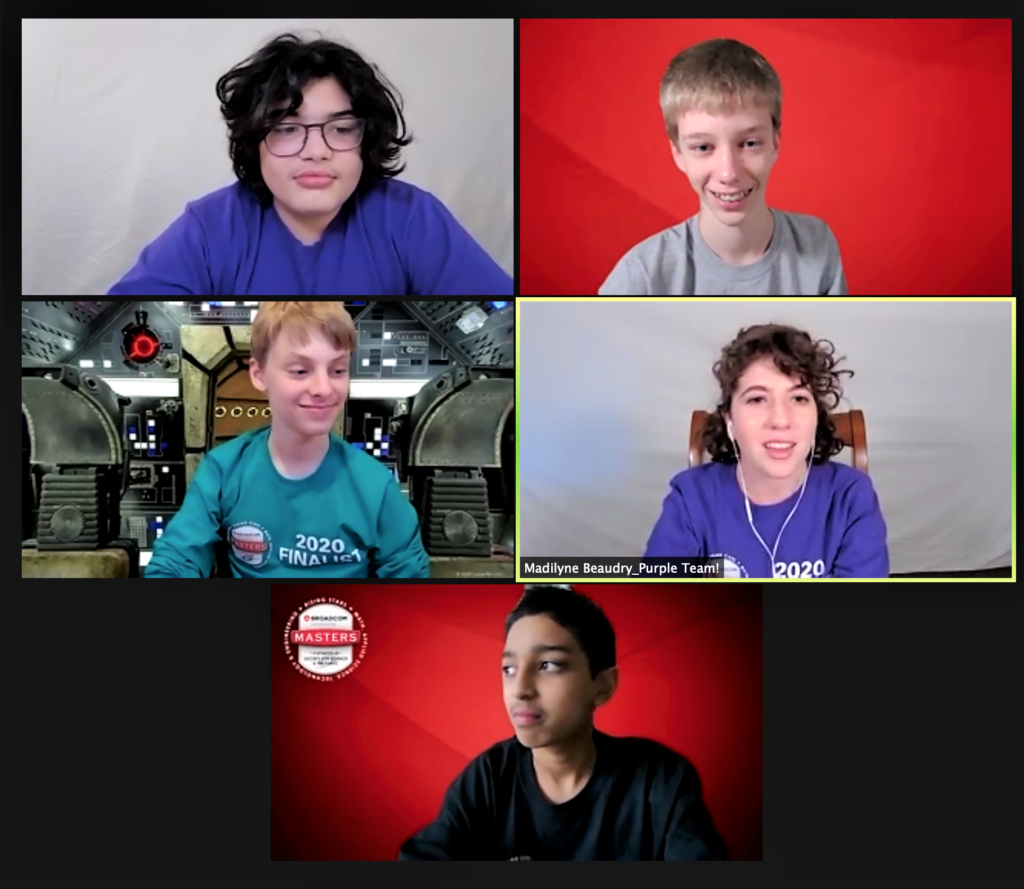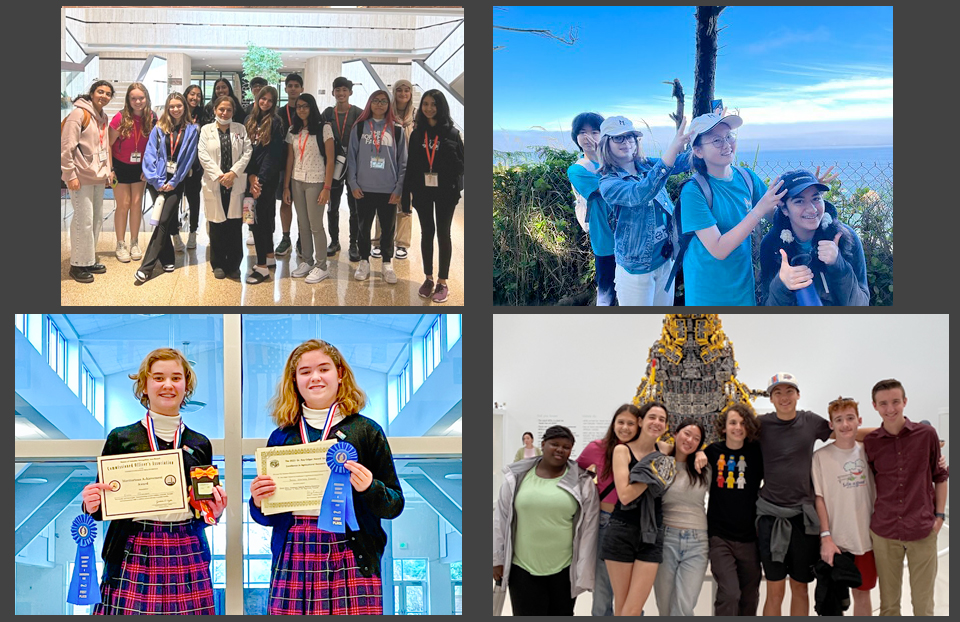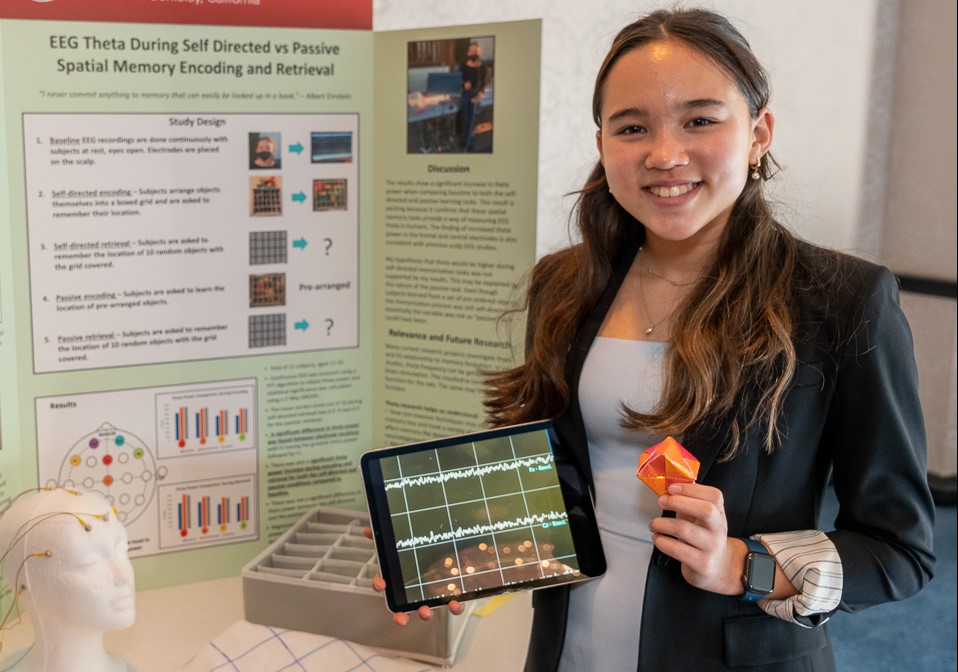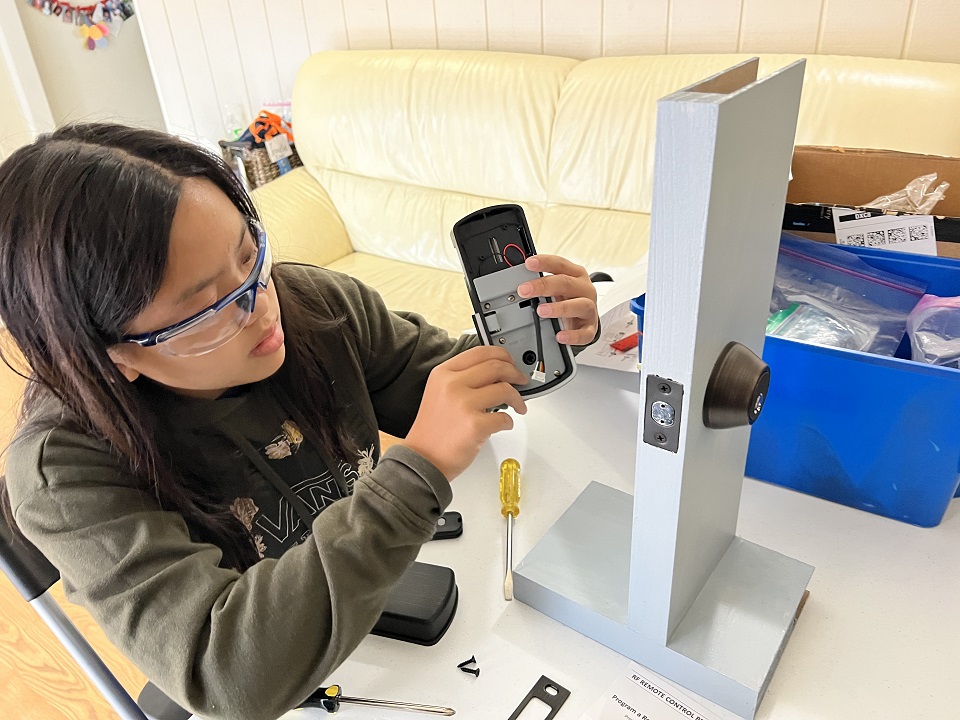Five Questions with Kai Vernooy, winner of the Marconi/Samueli Award for Innovation
Meet Niskayuna, New York middle schooler, Kai Vernooy. This year, 14-year-old Kai won the $10,000 Samueli/Marconi Award in the Broadcom MASTERS, the nation’s premier middle school STEM competition, for both his vision and promise as an innovator. Kai worked with two other teammates, Arin Khare and James Lian, to critically think about and fix a serious problem in the American political landscape: gerrymandering. This is when voting district boundaries of electoral constituencies are manipulated to give one political party an advantage to win over another. In other words, gerrymandering is a legal way to sketch jagged lines in the drawing of electoral maps so that one political party will ultimately win in a given district.
Recently featured in Forbes, Kai’s project surely holds special significance during this election season and has implications for democracy as a whole. Another detail that is striking about Kai’s project is that he and his teammates are not yet of voting age, but that didn’t stop them from exploring challenges in the American political system. They used science and mathematics to analyze how the serious problem of gerrymandering can be overcome and hopefully those of voting age are paying attention.
Let’s hear more from Kai below:
Which sci-fi advancement do you wish we had by now?
I both enjoy Star Trek and am interested in space, so the answer isn’t too difficult for me: I wish we had a method of faster-than-light travel. Given the 24 superhabitable planets recently discovered, this advancement would open up obvious avenues of exploration. I think everyone’s probably thought about extraterrestrial life; maybe superluminal travel is our next step in the search.
Which scientist – alive or deceased – would you want to solve scientific mysteries with and why?
I’d like to talk to Alan Turing, the pioneer of computing, mostly because I’ve gotten very interested in the theory behind computer science. He was terribly persecuted in his time, and I’d be fascinated to hear his insights into the developments of modern artificial intelligence.
What would you invent if you had all the resources in the world?
Climate change is clearly a major (if not the greatest) problem we’re facing in the 21st century. Though I believe the best plan for combatting this right now is legislative regulation, working with science to reduce our impact on the environment would definitely be a priority for me, if I were given the resources.
Given that Broadcom MASTERS went virtual this year, what about your experience surprised you the most?
I think it was surprising how quickly I got to know all 29 other students, even in the virtual format. Although we couldn’t all be with each other, there were semi-nightly Zoom meetings organized by other students where we would talk and play games. It was easier than I expected to communicate with judges and challenge leaders, too.
What was your most favorite or most memorable experience from virtual Broadcom MASTERS? And why?
My favorite memories of the virtual Broadcom MASTERS are those of the team challenges. I really enjoyed working on problems with a group of four other students interested in the same things as me, and the challenges were diverse! I think the most interesting one was studying the distribution of leaf types across different climates, because we were able to gather and study our own data, ending up with data from across the US.



